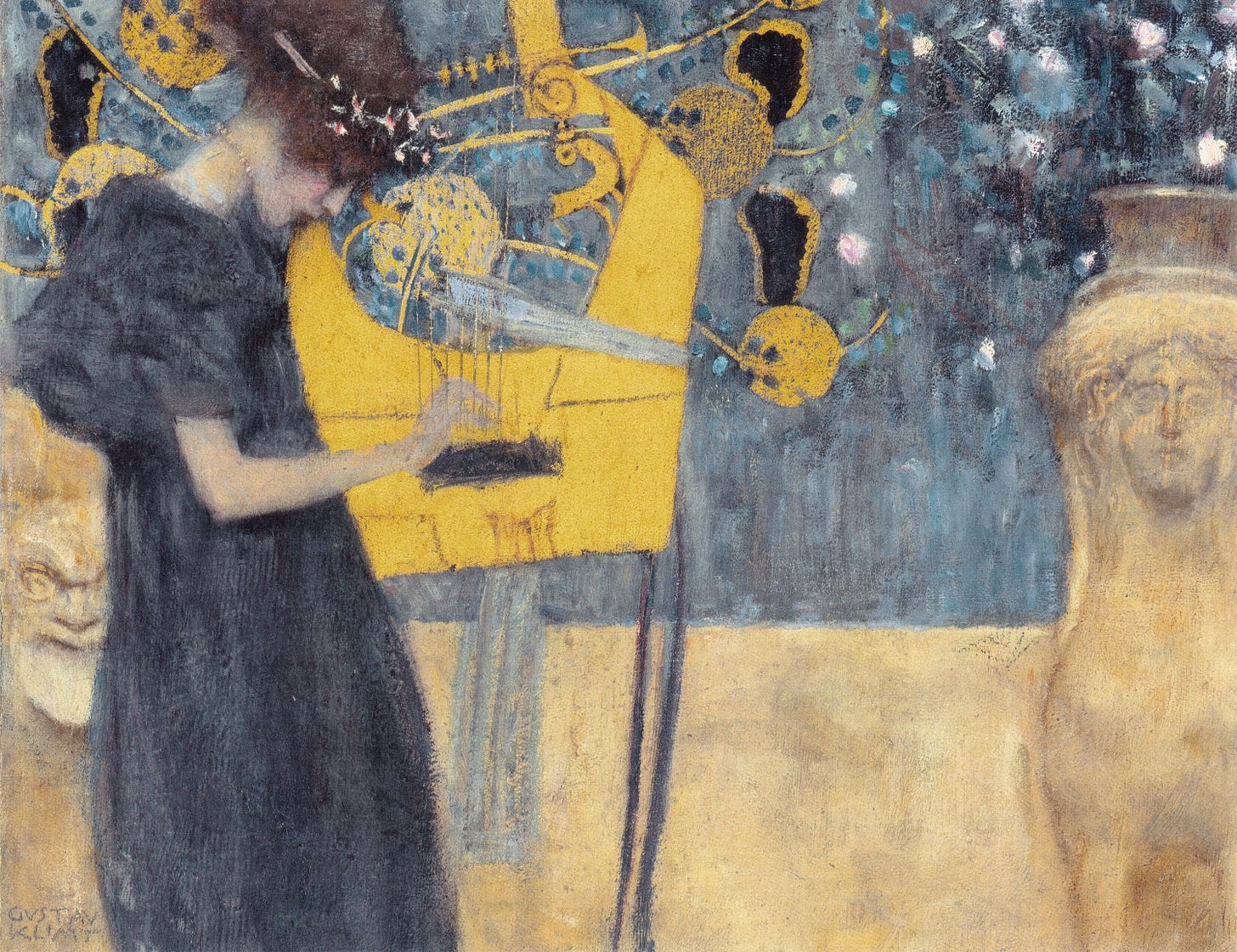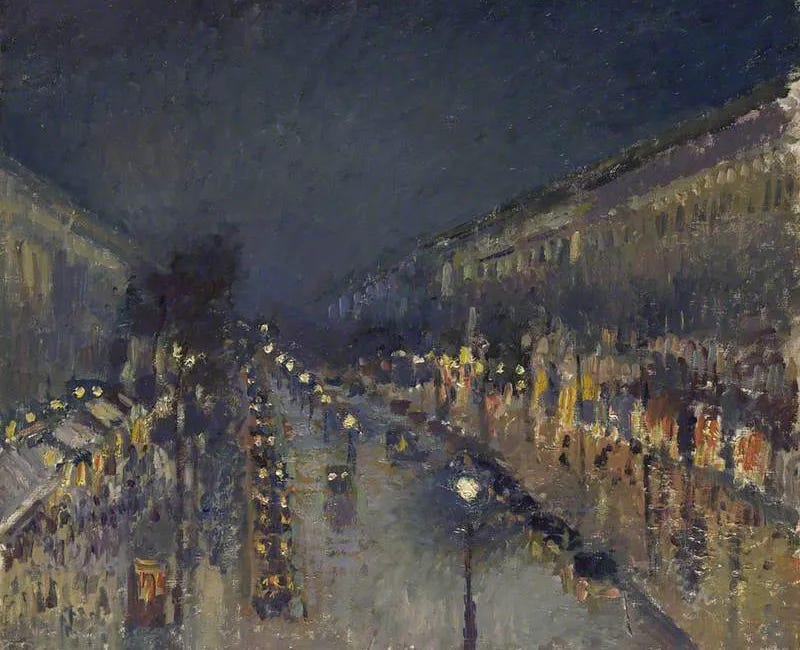Whether you're just starting out or want to go from intermediate to advanced, music and poetry offer a rich, enjoyable, and cultural way to immerse yourself in a language. Here's a full roadmap for using them effectively.
Why this guide?
You've heard that listening to music or reading poetry in your target language can help you learn faster and better.* But how do you actually do that? This post is your step-by-step system to use songs and poems to improve:
Comprehension (oral and written)
Vocabulary and grammar
Cultural immersion
Expression and creativity
This is how I learned English myself, following those techniques really helped me understand and absorb the language in a very natural, organic, and effortless way as I’ve always loved music. I hope they will help you too!
*If you want some cool facts and science on the subject:
-Why Learning French Through Poetry is the Most Beautiful Way to Learn
-Want to Learn and Remember? Don’t Cram. Connect.
Setup: tools you’ll need
Before diving in, gather a few essentials:
Spotify / YouTube playlist of songs in the target language
Lyrics site: e.g., LyricsTranslate.com, Genius, or Musixmatch
Poetry resource: A poetry site (like Poésie française for French), or a bilingual poetry anthology
Notebook or app for logging new words/phrases
For French learners: French en Poésie poetry and music sections & The French en Musique Workbook ( 10 Songs. 50 Pages. 1 Soulful Journey into French.)
Learning with Songs – Step by Step
1. Choose a song that matches your level
Pick a song that’s appropriate for your current ability:
If you’re a beginner, choose slow, clear songs with repetition (like acoustic tracks or children's songs).
If you’re intermediate or advanced, experiment with rap, indie, or pop for more natural language use and slang.
Above all, always pick songs you enjoy. That emotional connection boosts retention.
2. First Listen: just enjoy it
Your first listen should be relaxed. Don’t try to analyze, just let the melody and sounds wash over you. Focus on the tone, rhythm, and emotion.
3. Second Listen: read the lyrics
Play the song again, but this time read along with the lyrics. Notice:
What words you recognize
What’s new or unfamiliar
How words are pronounced vs. how they’re written
4. Break Down a Verse
Choose a short section (a verse or chorus) and:
Translate it yourself or find a translation
Look up any grammar that stands out (verb tenses, idioms, slang)
Write down interesting phrases or new vocabulary
5. Shadowing: repeat after the singer
Play a line, pause, and repeat it aloud, mimicking the pronunciation, rhythm, and tone as closely as possible. This builds accent, confidence, and listening accuracy.
6. Sing Along
Once you’re familiar with the song, start singing with it. This might feel silly at first—but it’s powerful. Singing helps you internalize vocabulary, rhythm, grammar, and sentence flow.
7. Review Regularly
Revisit the song throughout the week. Try listening without looking at the lyrics. Can you follow the meaning? Can you sing parts from memory? Repetition is where fluency starts to form.
Learning with Poetry – Step by Step
1. Choose a Short Poem
Start small. Choose a short poem (4–8 lines) or even a haiku. French learners can explore poets like Jacques Prévert or Paul Éluard for accessible, emotional language. If you're a French en Poésie member, you'll often find hand-picked poems already waiting for you, read aloud, with love, to tune your ear to the sound of the language.
2. Listen First (optional but powerful)
Before diving into the text, take a moment to just listen. If you’re on French en Poésie, hit play on the poem reading, or try Youtube. Notice the tone, emotion, and rhythm without trying to translate. Let the sound reach you first, this builds intuitive listening and emotional connection.
3. Read It Aloud
Poetry is made for the ear. Read it out loud and focus on:
Rhythm and flow
Sound patterns like rhyme and alliteration
Intonation and emotion
Try to imitate the cadence you heard in the recording. Let your voice carry the feeling.
4. Understand the Meaning
Break down the poem line by line. Look up unfamiliar words. Reflect on the mood and imagery. Poetry often uses figurative language, so don’t expect it to be literal, this makes it rich, not confusing.
5. Analyze the Language
Take note of:
Verb tenses and grammar choices
Poetic devices like metaphor or repetition
Cultural references or idioms
Compare the phrasing to how you’d express the same idea in your native language. Ask: Why did the poet choose that word?, this trains you to think like a native speaker.
6. Recite and Memorize
Pick a favorite stanza and memorize it. Reciting poetry regularly helps reinforce grammar and vocabulary and improves pronunciation. It’s also a great party trick!
Targeted Skills: how music & poetry help different aspects
Music and poetry help build all core language skills in different ways:
Listening improves as you tune your ear to real speech patterns through song and verse.
Pronunciation develops through shadowing and singing, you're training your accent like a native.
Vocabulary and idioms are absorbed in context, with emotional associations that make them easier to remember.
Grammar becomes more intuitive as you see it used artistically and creatively.
Writing and expression improve as you imitate poetic language or write your own verses.
Cultural understanding deepens as you explore the themes, history, and values expressed through art.
Pro Tips For Deep Learning
One song per week: Go deep, not wide. Master it fully.
Create your own playlist with all your favorite songs and the songs you “study”
Join communities: Reddit, forums, or Substack chats & comments where people share lyrics, poems, and analyses
Write your own poems or parodies: Use structures you’ve learned, even simple ones
A Daily/Weekly Routine (Just 20 Minutes)
You don’t need hours. Just 20 minutes a day can make a huge difference:
5 min – Listen to a song with lyrics
5 min – Translate one verse and log new words
5 min – Practice shadowing or sing along
5 min – Recite or reflect on what you’ve learned
If you’re working with a poem, swap the song for a short stanza and follow the same process.
Resources To Get Started
Websites/Apps
Feels silly to even mention it, but obviously one of the best ressource out there: Youtube
For French Learners: explore French en Poésie
If you're learning French and want to dive deeper using music and poetry, you're in the perfect place.
On French en poésie, I curated a selection of poems and songs designed to help you absorb French in the most natural, immersive way.
It includes:
Carefully selected French poems: read aloud, line-by-line translation, vocabulary, and grammar highlights
French songs with video, lyrics, translation, vocabulary and grammar
Context to help you feel the culture and sound of French from the inside
It’s more than just content, it’s your living, breathing language lab, rooted in beauty, rhythm, and real usage.
Subscribe for free and receive access to the ever-growing French en Poésie Playlist where you'll find all the songs we enjoyed together.
Whether you're just starting out or want to deepen your fluency, this is where French comes alive: through sound, meaning, and emotion.
Want more music? Get the French en Musique Workbook (free for paid subscribers):
A 50-page workbook to guide you through 10 stunning French songs, step by step.
Inside, you’ll find:
Carefully chosen lyrics from Piaf to Stromae, Angèle to Aznavour
Clear translations + no-fuss grammar explanations
Soulful vocabulary, the kind you’ll actually use
Creative prompts to help you think, write, and feel in French
A QR code to a curated playlist, just press play and learn
Dernière Pensée
Music and poetry are portable immersion machines. With the right approach, you’re not just studying a language, you’re living it. Without realising it, you’re learning and expanding your knowledge and language level, in the most enjoyable and fun way!
Start small. Stay consistent. Fall in love with the sounds and stories of your target language. Chante ! Dance ! Savoure !
Want to go deeper? Join the circle.
Paid subscribers receive full access to:
The Poem of the Week newsletter
Audio readings (normal & slow), full text, English translation, vocabulary and grammar tips, all layered to support memory and fluency.Weekly Literary Bites (every Thursday)
Curated excerpts from French literature with audio, translation, and gentle linguistic insights.Entre les Lignes
A bi-monthly letter with carefully crafted exercises to go deeper into your french with direct access to a teacher that sees you.
French en Poésie Circle
Access to a private community/chat to connect and practice your writing with other French learners & Francophiles.
Support this space. Deepen your learning. Let French become part of you.
How to Learn French and Actually Enjoy It
Learning French doesn’t have to mean dry textbooks, confusing grammar charts, or endless vocabulary lists. In fact, it shouldn’t.












